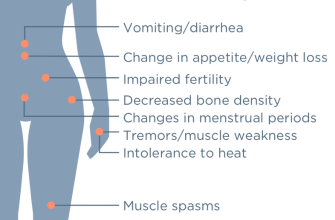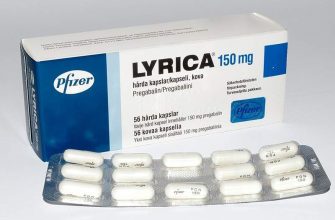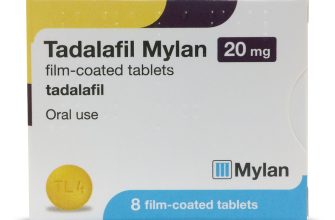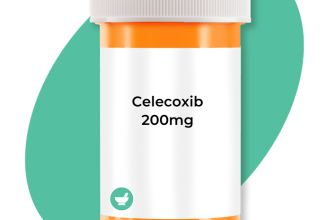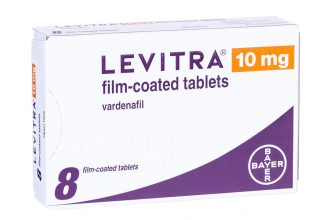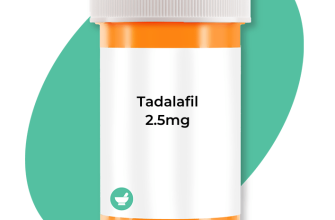If you find yourself without a Norvasc prescription, take immediate action. First, contact your healthcare provider to discuss your current health needs. It’s vital to explore alternative treatments or medications that may suit your condition.
Understanding why you might not have a prescription is essential. If your physician has deemed Norvasc unnecessary or if you’ve experienced side effects, consider discussing these concerns openly. Being proactive about your health empowers you to seek the best care possible.
Next, look into other options for managing hypertension or related issues. Lifestyle changes such as diet, exercise, and stress management can significantly impact your blood pressure levels. Implementing these changes can complement any potential medication changes.
It’s also wise to research local pharmacies or telehealth services that may assist in getting a new prescription. Many healthcare providers offer remote consultations, making it convenient to address your prescription needs without delay.
Lastly, keep track of your symptoms and any changes in your health. Documenting these can provide valuable information during your next healthcare appointment. This approach helps in making informed decisions about your treatment options moving forward.
- No Norvasc Prescription: Understanding Your Options
- What to Do If You Can’t Get a Prescription for Norvasc
- Alternative Medications to Consider for Hypertension
- Common Classes of Medications
- Natural Alternatives
- The Importance of Consulting with a Healthcare Professional
- Lifestyle Changes to Manage Blood Pressure Without Medication
- Understanding the Risks of Not Treating High Blood Pressure
- Heart Health and Hypertension
- Impact on Organs and Overall Health
No Norvasc Prescription: Understanding Your Options
If you find yourself without a Norvasc prescription, several alternatives can support your health management. First, consult your healthcare provider to discuss your situation. They can evaluate your medical history and determine if a different medication would be more suitable.
While waiting for your doctor’s advice, consider lifestyle adjustments that can help manage blood pressure. Exercise regularly, maintain a balanced diet low in sodium, and manage stress through techniques such as meditation or yoga. These changes can complement any medication you may switch to.
In case you’re unable to access your normal provider, look for walk-in clinics or telehealth services. Many clinics offer rapid consultations, allowing you to discuss your condition with a qualified professional. This option might lead to a timely prescription for an alternative medication.
If affordability is a concern, explore patient assistance programs or generic medications that serve similar purposes as Norvasc. Many pharmaceutical companies provide options for those who qualify, ensuring you can continue managing your health effectively.
Here’s a summary comparison of alternatives to Norvasc:
| Medication | Class | Indication |
|---|---|---|
| Amlodipine | Calcium Channel Blocker | High Blood Pressure, Angina |
| Losartan | Angiotensin II Receptor Blocker | Hypertension |
| Hydrochlorothiazide | Diuretic | High Blood Pressure |
| Metoprolol | Beta Blocker | Hypertension, Heart Issues |
Consult your healthcare provider to find the best option tailored to your needs. Take proactive steps in managing your health, and explore all available resources for support during this time.
What to Do If You Can’t Get a Prescription for Norvasc
Consider discussing your situation with a healthcare provider. A doctor can explore alternative medications that may suit your needs. There are several options to manage high blood pressure or angina if Norvasc is unavailable.
If you are experiencing difficulties accessing your prescription, try the following steps:
- Contact your prescribing doctor. They might substitute Norvasc with a similar medication.
- Speak to your pharmacist. They can advise on over-the-counter options or generics that might be right for you.
- Review your health insurance plan. Ensure there are no coverage issues or limitations affecting your access.
- Consider telehealth services. Many online platforms allow quick consultations with doctors who can provide prescriptions.
- Check for patient assistance programs. Pharmaceutical companies often offer support for those who qualify.
Keep track of your blood pressure regularly. If you notice significant changes or symptoms, contact a healthcare professional immediately.
Stay informed about lifestyle changes that can help manage your condition. A balanced diet, regular exercise, and stress management techniques may support your overall health and reduce reliance on medications.
Alternative Medications to Consider for Hypertension
If you seek alternatives to Norvasc for managing hypertension, several options may suit your needs. It’s important to discuss these with your healthcare provider to find the best fit for your health situation.
Common Classes of Medications
- ACE Inhibitors: These medications help relax blood vessels. Examples include Lisinopril and Enalapril.
- ARBs: Angiotensin II receptor blockers like Losartan and Valsartan also reduce blood pressure by relaxing blood vessels.
- Thiazide Diuretics: Medications such as Hydrochlorothiazide effectively reduce fluid levels, lowering blood pressure.
- Beta Blockers: Drugs like Metoprolol and Atenolol can decrease heart rate and reduce blood pressure.
- Calcium Channel Blockers: Similar to Norvasc, other options like Diltiazem can help reduce heart rate and relax arteries.
Natural Alternatives
- Omega-3 Fatty Acids: Found in fish oil, omega-3s may improve heart health and reduce blood pressure.
- Coenzyme Q10: This supplement is known for its potential to lower blood pressure in some individuals.
- Hibiscus Tea: Drinking hibiscus tea regularly has shown promise in lowering blood pressure.
- Magnesium Supplements: Magnesium helps regulate blood pressure, making it a beneficial addition to your regimen.
Each alternative carries its own profile of benefits and potential side effects. Consultation with a healthcare professional ensures safe and effective integration of these medications or supplements into your treatment plan.
The Importance of Consulting with a Healthcare Professional
Consult a healthcare professional before making decisions about medications like Norvasc. Accurate diagnosis and personalized treatment plans are crucial for managing conditions such as hypertension or angina. A doctor assesses individual health history, existing medications, and lifestyle factors to ensure safety and efficacy.
Discuss potential side effects and interactions with other drugs. This information allows for informed choices and minimizes risks associated with self-medication. Regular consultations help monitor progress and make necessary adjustments to the treatment regime.
Healthcare professionals provide guidance on lifestyle modifications that complement medication. Diet, exercise, and stress management play significant roles in overall health. By collaborating with a healthcare provider, you can develop a strategy that enhances treatment outcomes.
Listening to expert advice ensures understanding of how medications function and their long-term implications. This approach enables you to participate actively in your health journey, leading to more effective management of your condition.
Lifestyle Changes to Manage Blood Pressure Without Medication
Incorporate regular physical activity into your daily routine. Aim for at least 150 minutes of moderate aerobic exercise each week. Activities like brisk walking, cycling, or swimming can significantly lower blood pressure.
Adopt a heart-healthy diet. Focus on whole foods such as fruits, vegetables, whole grains, and lean proteins. Limit your intake of saturated fats, salt, and sugar, which contribute to higher blood pressure levels.
Maintain a healthy weight. Losing even a small amount of weight can reduce blood pressure metrics. Track your progress and set achievable goals for weight management.
Practice stress management techniques daily. Engage in activities like yoga, meditation, or deep breathing exercises. These methods help to lower stress hormones that can elevate blood pressure.
Limit alcohol consumption. Drink in moderation, which is no more than one drink per day for women and two for men. Excessive alcohol intake can raise blood pressure significantly.
Quit smoking if you use tobacco products. Smoking raises blood pressure and damages blood vessels. Embrace a smoke-free lifestyle for long-term heart health.
Ensure adequate sleep each night, aiming for 7-9 hours. Poor sleep can influence blood pressure levels. Create a calming bedtime routine to enhance your sleep quality.
Stay hydrated by drinking plenty of water throughout the day. Proper hydration supports overall health and can help maintain optimal blood pressure.
Monitor your blood pressure regularly. Keep track of your readings to observe patterns and assess the effectiveness of your lifestyle changes.
Understanding the Risks of Not Treating High Blood Pressure
Ignoring high blood pressure can lead to severe health complications. Research shows that untreated hypertension significantly increases the risk of heart attack and stroke. A study published in the Journal of the American College of Cardiology indicates that individuals with high blood pressure are three times more likely to suffer from cardiovascular diseases.
Heart Health and Hypertension
High blood pressure damages blood vessels, making them less elastic and more prone to blockages. This process can result in coronary artery disease, where the heart muscle does not receive enough blood. Furthermore, the strain on the heart may lead to heart failure, a condition where the heart struggles to pump sufficient blood to meet the body’s needs.
Impact on Organs and Overall Health
Chronic high blood pressure can affect your kidneys, leading to long-term damage and potential kidney failure. The eyes are not spared either; hypertension can cause vision loss through conditions like hypertensive retinopathy. Symptoms of hypertension, often mild or nonexistent, can disguise these critical health issues, making regular check-ups essential.
Treating high blood pressure, whether through lifestyle changes or medication, is crucial for maintaining overall health. Regular monitoring and a proactive approach can mitigate these risks and enhance quality of life.


